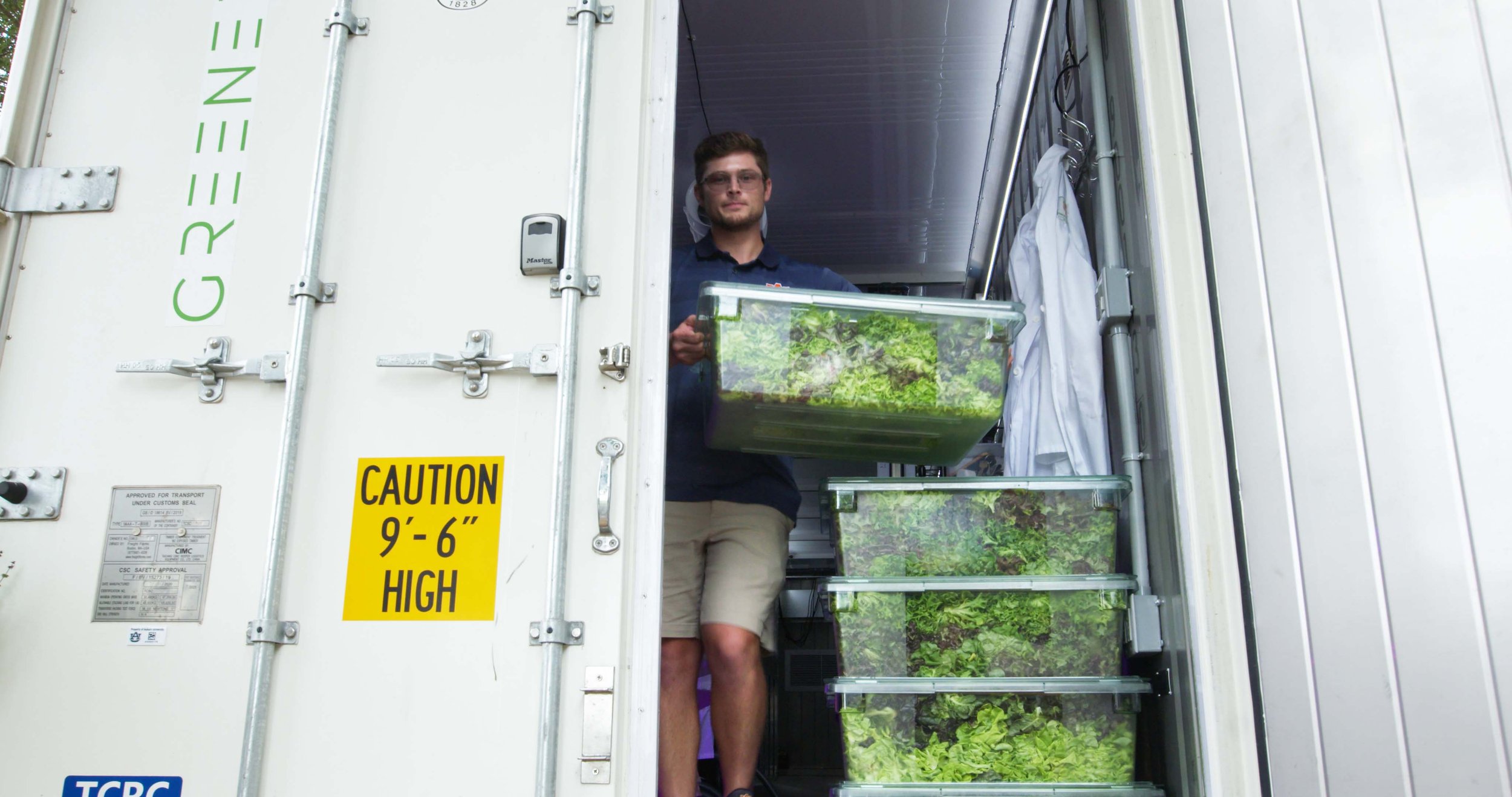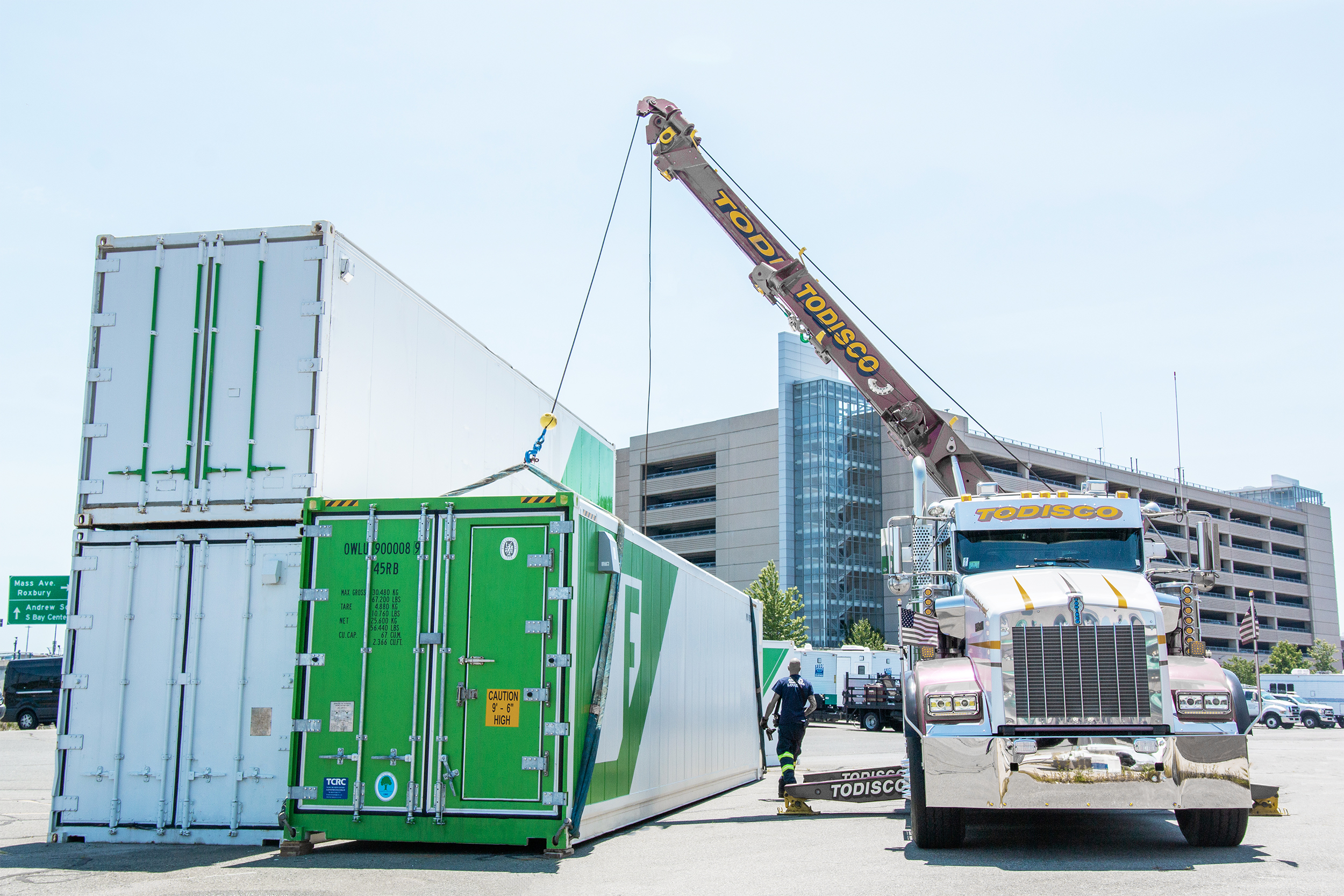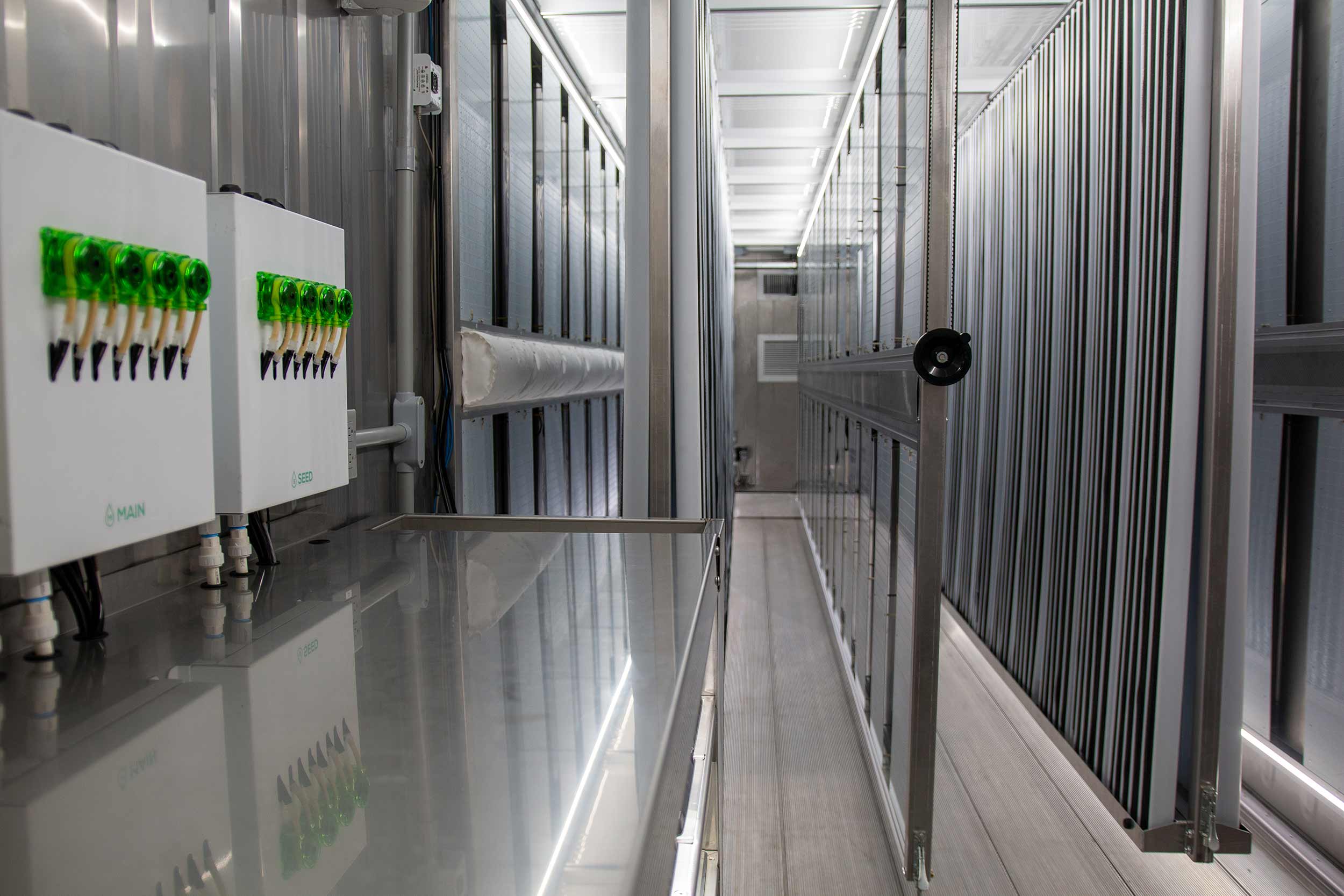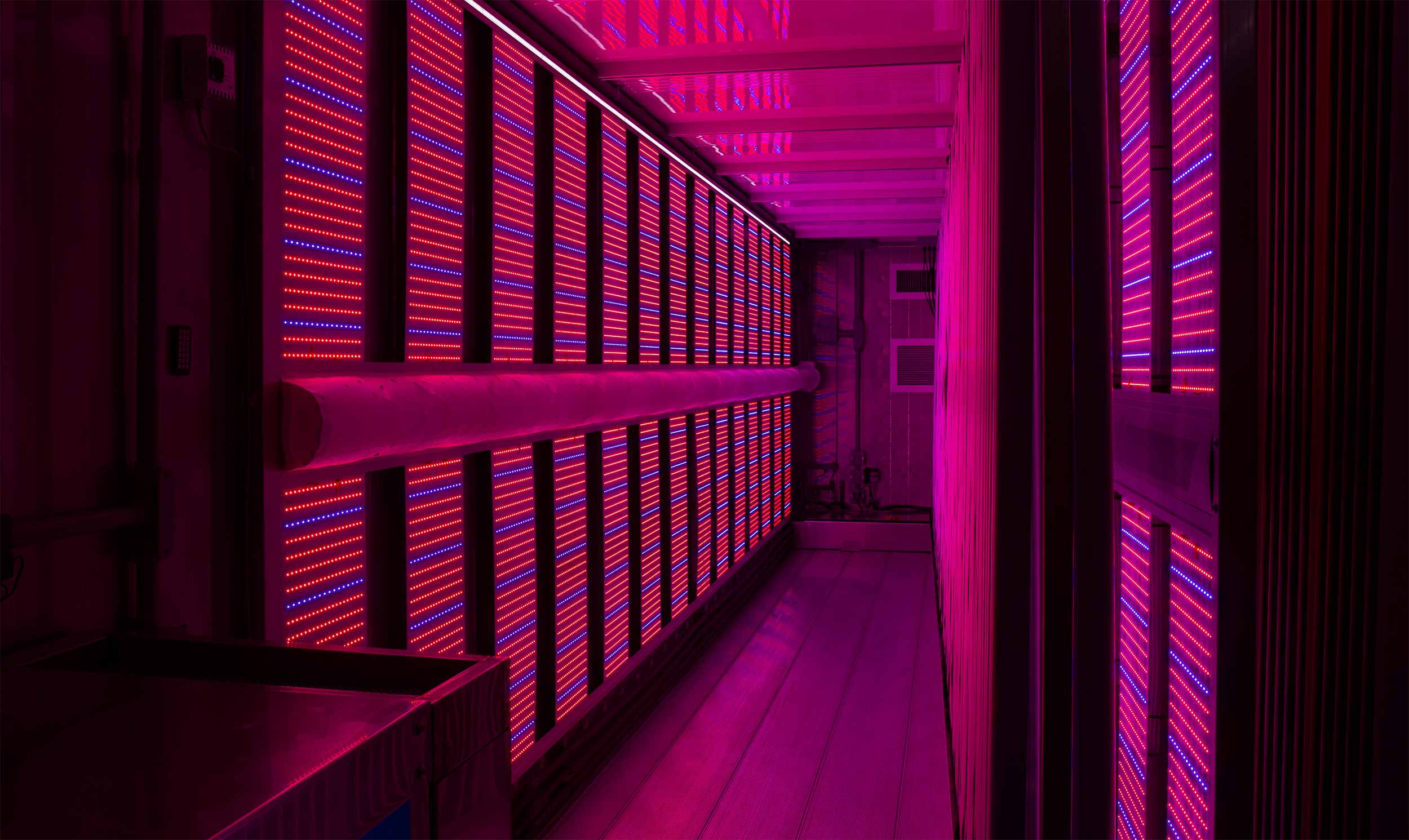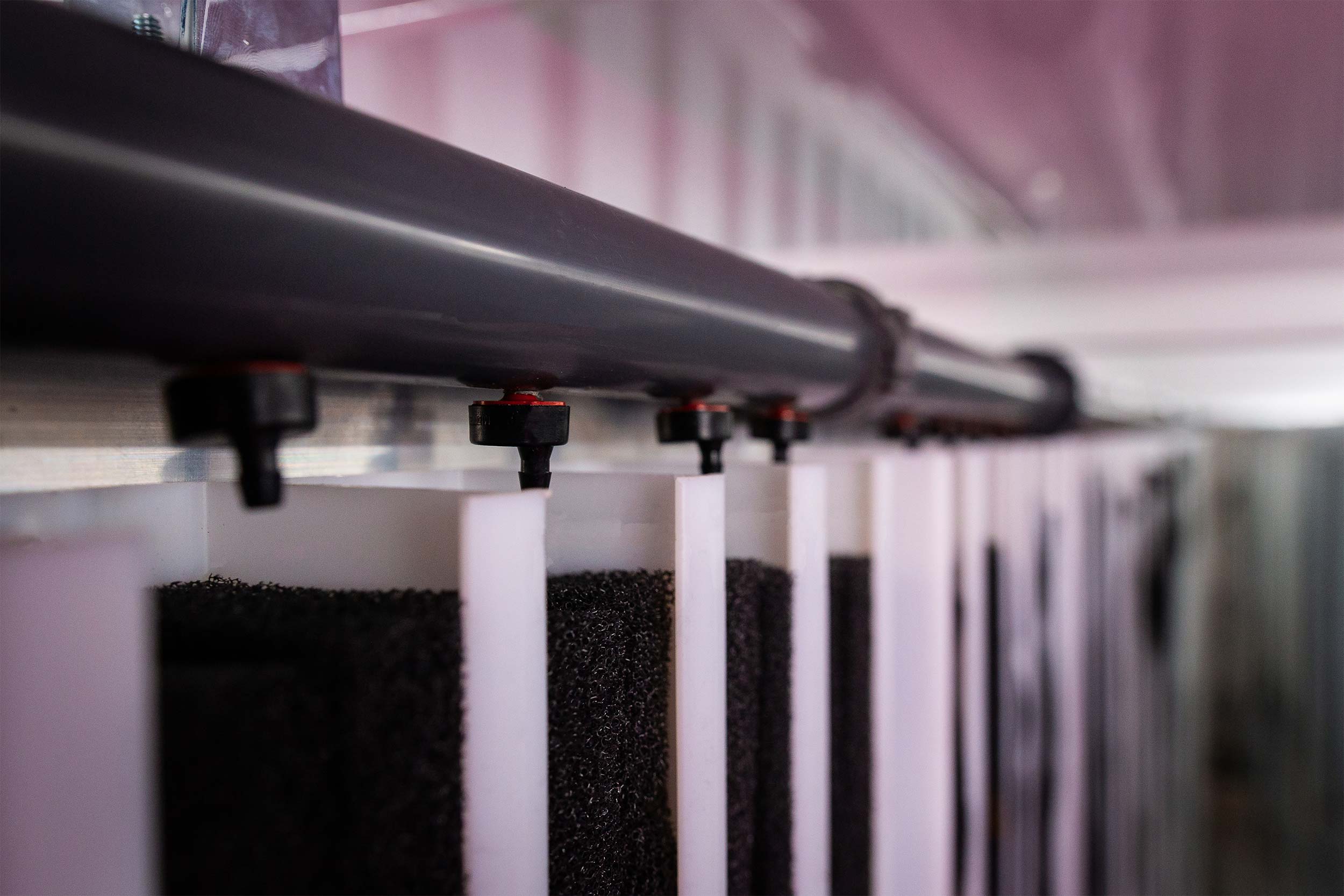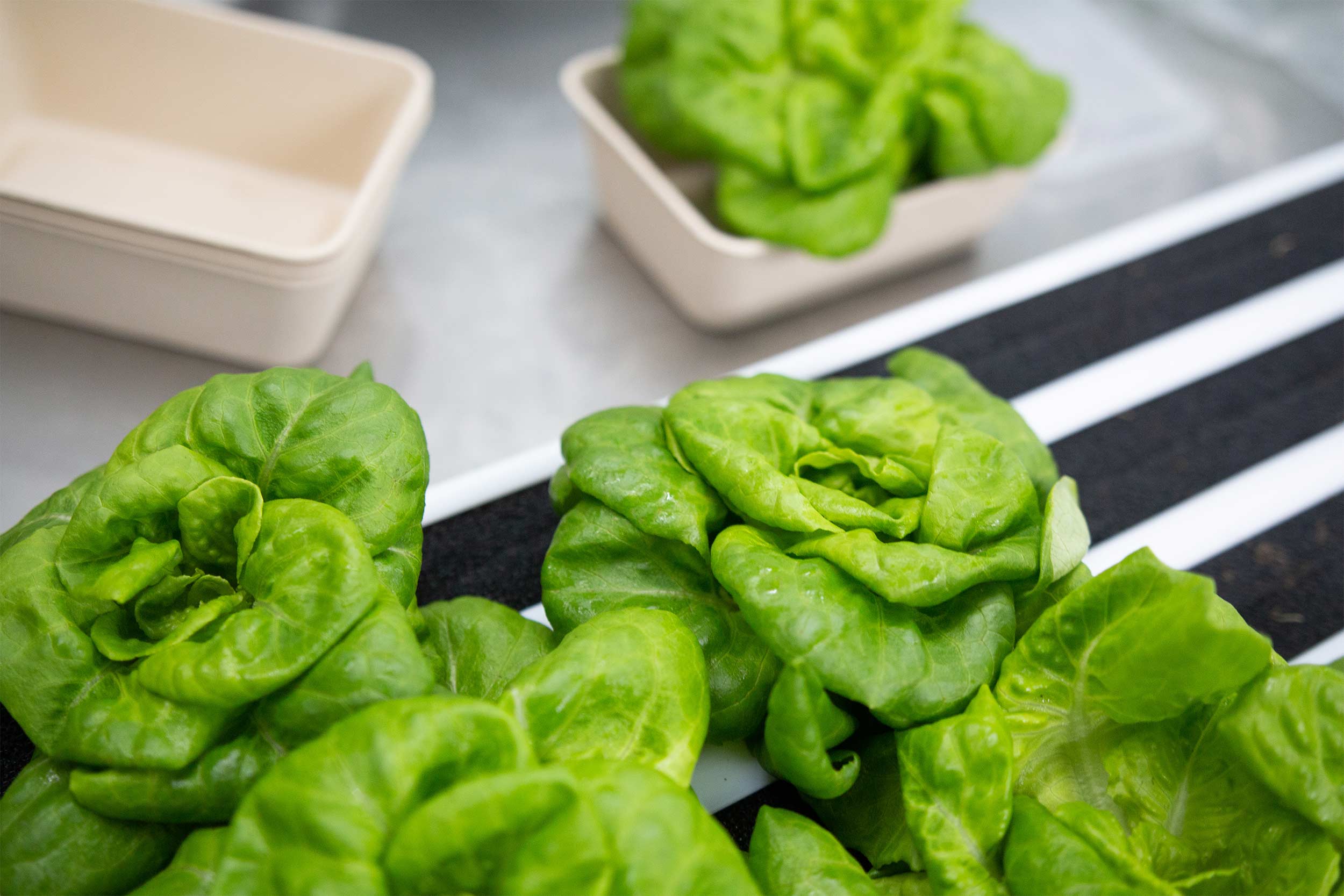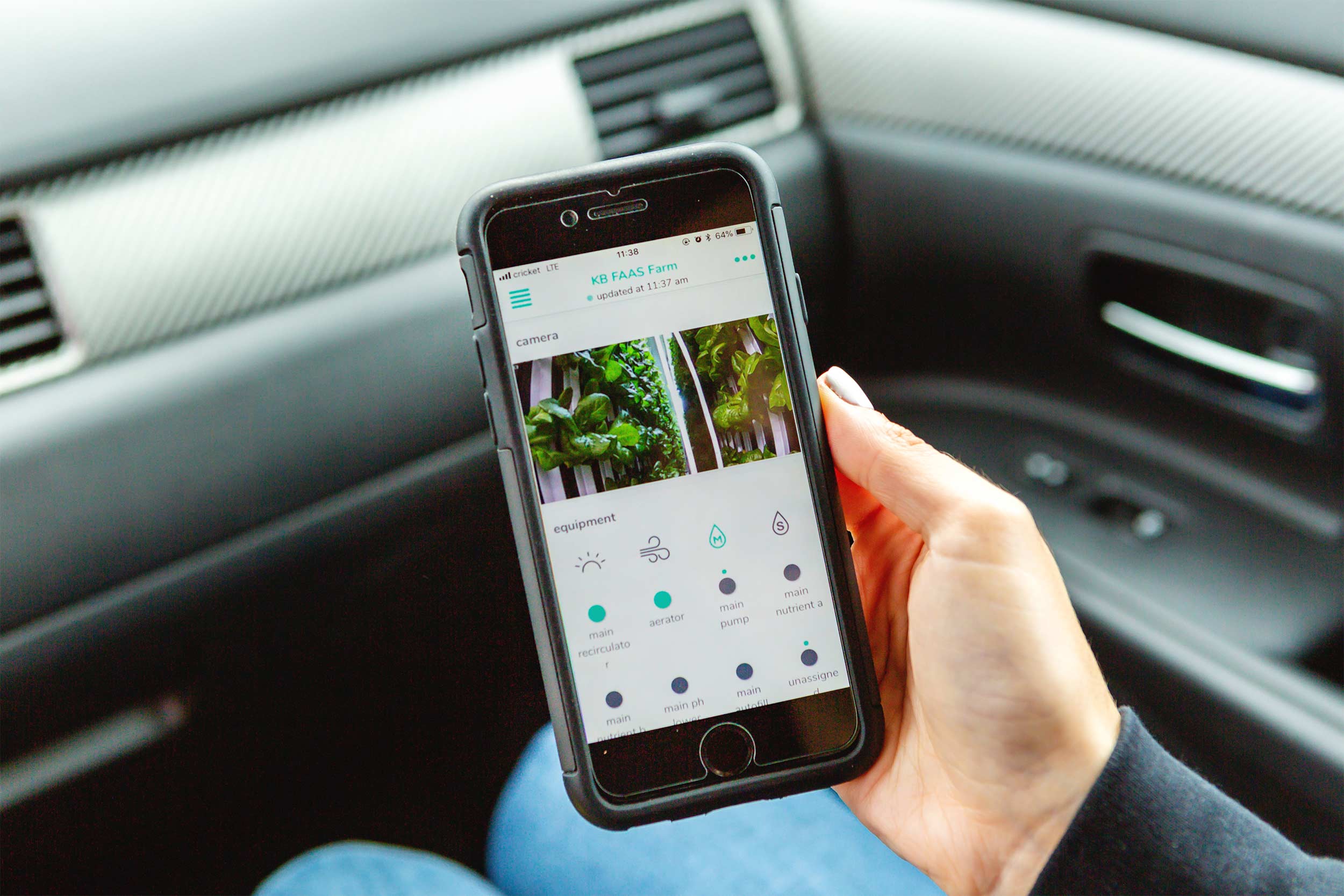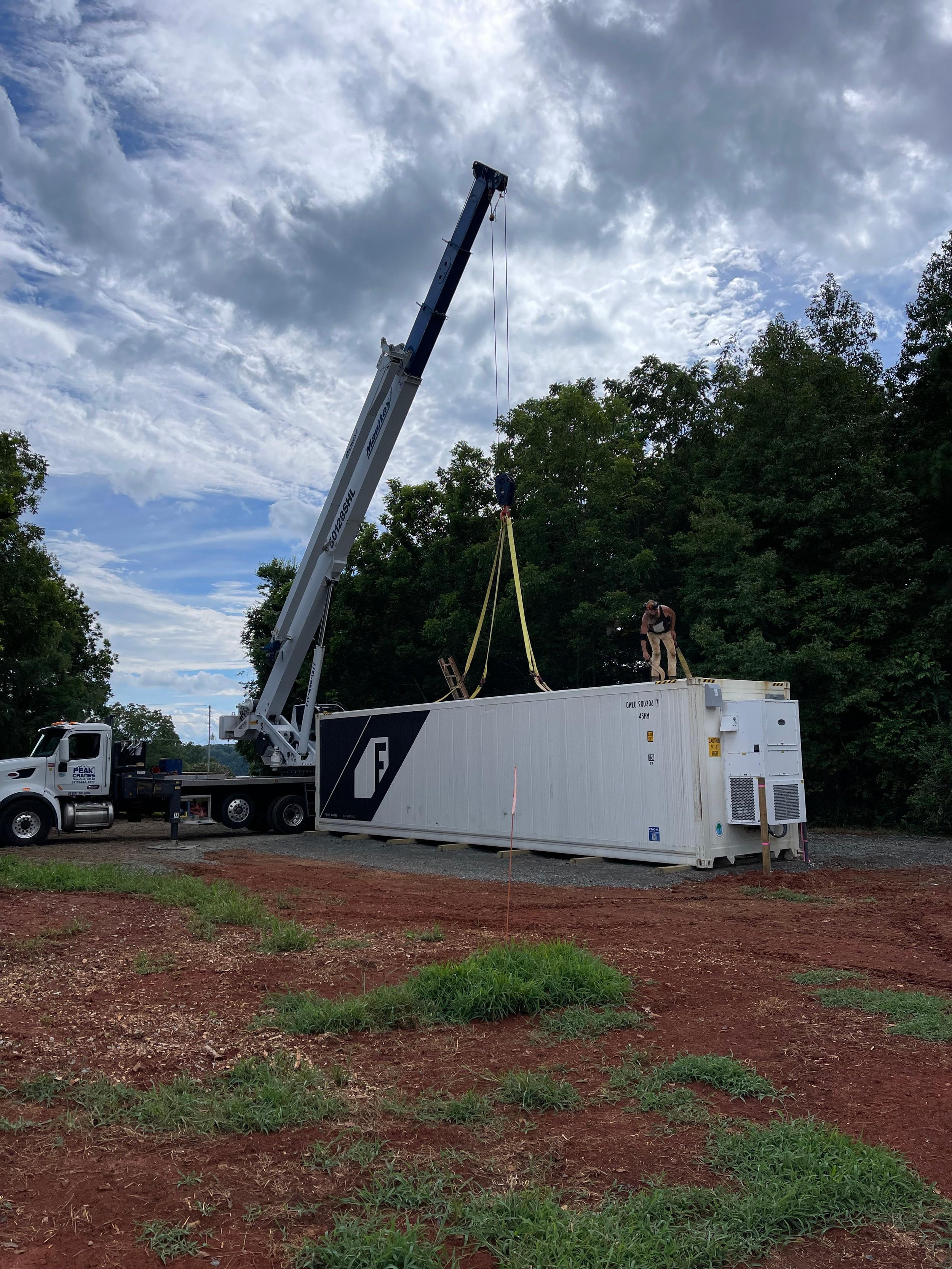Why Shipping Container Farming?
A tool to decentralize our food system.
Our food system is largely centralized. Take a look at some of the numbers: The amount of U.S. farms has dropped by roughly 70% since the 1930s. The average meal in the United States travels about 1,500 miles from farm to plate.
You would think the growing demand for local products would change this — but the reality is that farms are continuing to disappear. Studies show that only about one-third of small farms have a designated successor in the family, in part because many young people are unwilling to make the significant financial investment in an industry that requires them to dedicate long hours and significant physical effort for meager rewards. There’s a need for a new generation of farmers to provide that local food we seek.
Beyond this, a centralized food system poses concrete risks: widespread foodborne illness outbreaks; shipping interruptions caused by natural disasters that cause food spoilage in one part of the world while people on the other side are cut off from their food source; and depletion of our land and natural resources.
It’s time to decentralize. Shipping container farming has the power to do just that.
The Container Farming Solution
-
Container farms are complete growing systems in a box, meaning farmers can get growing as soon as they are delivered and perform every farm-related task — from seeding to harvesting and packaging — right inside the container.
-
Being the same size and shape as a standard shipping container (a compact 320 sq. ft), container farms are easy to ship worldwide and fit just about anywhere. Backyard, rooftop, alleyway, parking lot corner, one on top of the other — you name it! They’re a versatile tool to work toward decentralization.
-
Hydroponic farms use up to 99% less water than traditional farming. (Our shipping container farm uses just 5 gallons of water per day!) They’re an excellent solution for areas impacted by drought or arid weather conditions.
-
Farm automation software is a huge asset. It makes container farming less labor-intensive than traditional agriculture and other indoor growing techniques; controls the environment and plants nutrition and hydration levels; and enables farmers to remotely monitor the conditions in the farm. The software also uncomplicates many aspects of farming, making container farming an easier point of entry for inexperienced farmers.
Overall, it makes a farmer’s lifestyle more sustainable, taking on much of the work so that the farmer can focus on learning, take time to grow their business or pursue other interests, and even take a vacation.
-
Container farms are weather agnostic. What do we mean by that? Regardless of the weather, conditions inside are curated to be ideal for growing food using the farm’s intuitive climate controls. This means that shipping container farms can be used to grow food year-round, and that crops are protected from the impacts of severe weather and imperfect growing conditions.
-
Compared to other indoor farming methods, like large-scale greenhouses or warehouses, a container farm is much more cost-effective. Not only is it smaller and lower in cost, but produce can really be packed inside of a vertical farm, making the most of every square inch of space. Our container farms can host up to 13,000 plants at one time!
Container Farming as a Business
More than just a cool piece of technology and a solution for the future, the container farm is a platform for a viable business plan. A single vertical container farm can grow the equivalent of 2.5 acres of produce annually — a lucrative prospect — and a single farmer can comfortably operate up to 3 shipping containers. Plus, a modular and stackable design that conserves space and can be placed almost anywhere makes it easier to scale a vertical farming business compared to other farming methods.
Container farming works well in both urban and rural settings and can function as a standalone business or as an accessory to an existing farm or restaurant. Beyond food production, a container farm is an asset for small businesses and organizations — an easy way to incorporate sustainable practices, educational curriculum, community engagement, or job training into their programming, and a huge positive differentiator for their business.
Our Container Farm
Learn more about Freight Farms’ shipping container greenhouse, the Greenery™ S, and our farm automation software, farmhand®.
Central to our mission here at Freight Farms is to provide the hardware, software, and training needed to simplify the learning curve for new farmers and ensure their business is successful. Although some Freight Farmers come from farming backgrounds, most are new to the agriculture industry.
The Greenery S streamlines farming, simplifying it to an intuitive science with the aid of farmhand, which allows our Freight Farmers to remotely monitor and control operations inside the farm such as lights, temperature, and humidity, so they know what’s going on inside their container, even when they’re not there. Farmhand’s control also allows farmers to manipulate environmental conditions to bring out the best in their plants and grow produce that’s superior in aroma, taste, looks, and nutrition compared to average greens.



